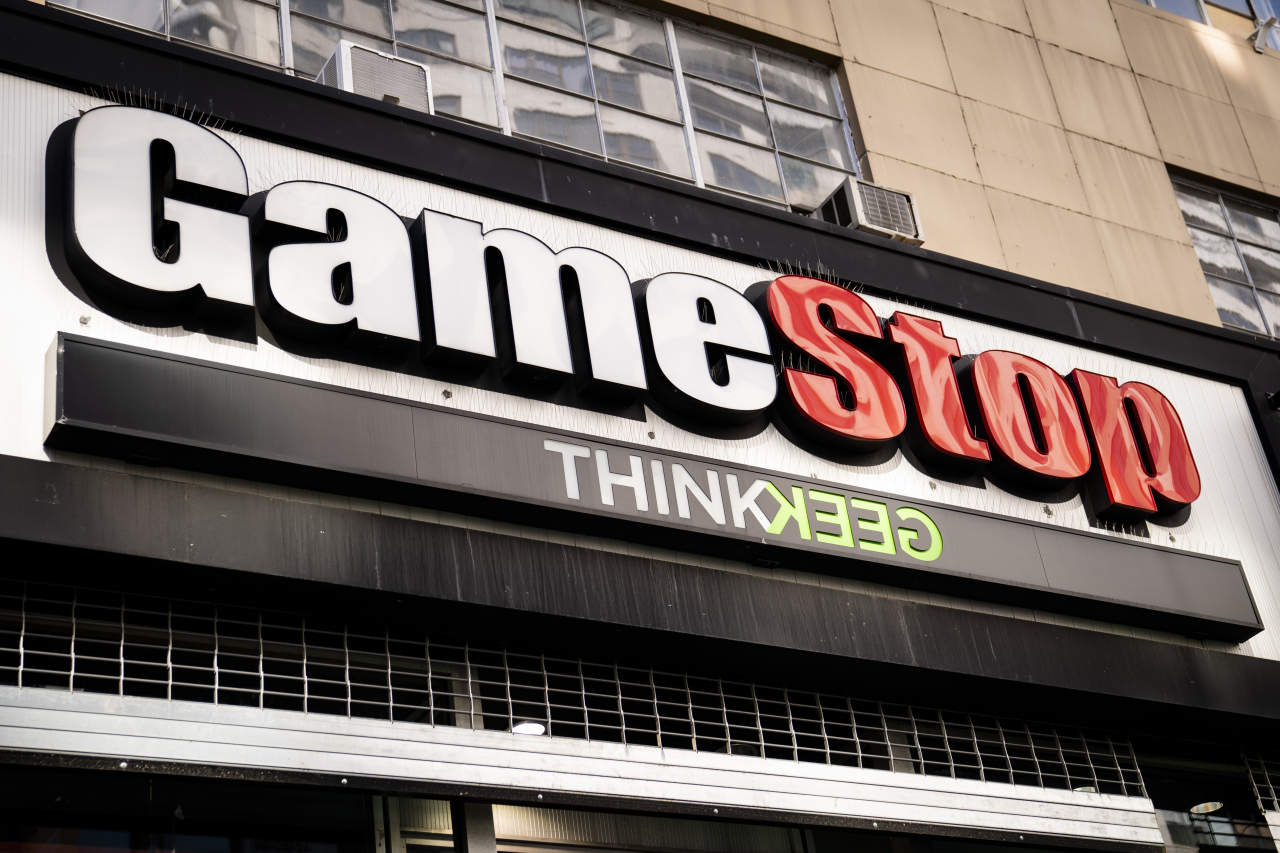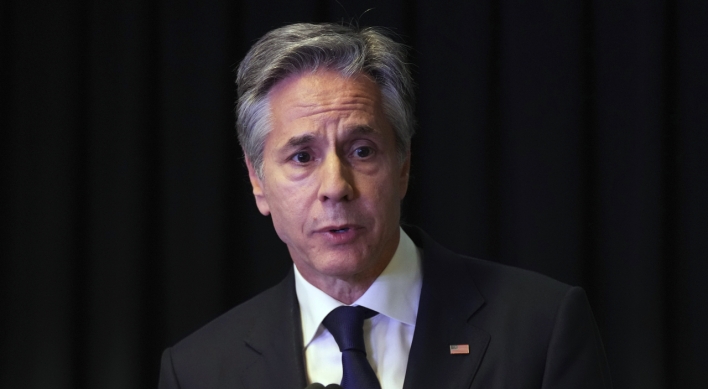Top BlackRock researcher sides with hedge funds in GameStop saga
By Son Ji-hyoungPublished : Feb. 9, 2021 - 15:21

A top researcher of the world’s largest asset manager BlackRock expressed regrets on Tuesday over the retaliation aimed at hedge funds for taking short positions in the United States’ stock market in the GameStop saga.
Henny Sender, managing director of the asset manager‘s internal think tank BlackRock Investment Institute, said it was “a sad thing” that retail stock traders had directed their anger at hedge funds.
Ensuring hedge funds are given an option to perceive a stock as overvalued and to carry out a proper investment scheme is a way to ensure a more sound, financial environment, she said, stressing that high liquidity was what disrupted traditional stock value measurement tools and overheated the market.
“I personally think shares can be overvalued as well as undervalued,” Sender said in a virtual fireside chat with the Seoul-based Institute for Global Economics Chairman Jun Kwang-woo.
“Who brought down Enron? Who brought down Lehman Brothers? It was hedge funds taking short positions against shares that were by any measure overvalued and in many cases, there were many issues of fraud … I think they lend a positive thing to the markets.”
The GameStop saga, which erupted in late January, was essentially a clash between liquidity-rich US retail traders and hedge funds who shorted the stock of the US brick-and-mortar video game retailer. The duel left the GameStop’s stock price subject to an extraordinary level of volatility.
The phenomenon was widely perceived as a show of anger among retail investors. Some believe the US Wall Street came out relatively unscathed despite being a culprit behind the 2008 financial crisis because of a “rigged” financial system while the global financial meltdown took a toll on ordinary people’s lives.
“It feeds the anger (of ordinary people) in the long term, but it is one more expression of the anger of people, in the face of the system that they are increasingly believed is rigged against them. But I don’t think it is a very functional response, and that’s a sad thing,” said Sender, formerly a journalist at the Financial Times.
Part of this also comes from the worldwide phenomenon that the zero interest rate world in the wake of the pandemic has disrupted stock valuation tools, which she views as prone to volatility in the end.
“Everything is about the relative value,” she said. “I totally lost my bearings in this world.”
In addition, Senders urged policymakers to ensure that a series of stimulus packages to prop up the real economy, including ongoing plans for a $1.9 trillion stimulus, are targeted at the right people.
“If it is just saved and goes to the stock market, you know in the way we see GameStop going up and down, is it really the best thing?’” she said. “Ordinary people are saying, ‘we want to be the beneficiaries of all this liquidity, we want to have our piece of the inflation in asset prices.’”
BlackRock, which manages assets worth $8.7 trillion as of January, is one of the international investment firms spearheading the trend of sustainable investing, which takes into account environmental, social and governance factors.
Sender urged the governments to adopt the right incentive structure with a long-term view, and called on private sectors to refrain from greenwashing.
By Son Ji-hyoung (consnow@heraldcorp.com)
Henny Sender, managing director of the asset manager‘s internal think tank BlackRock Investment Institute, said it was “a sad thing” that retail stock traders had directed their anger at hedge funds.
Ensuring hedge funds are given an option to perceive a stock as overvalued and to carry out a proper investment scheme is a way to ensure a more sound, financial environment, she said, stressing that high liquidity was what disrupted traditional stock value measurement tools and overheated the market.
“I personally think shares can be overvalued as well as undervalued,” Sender said in a virtual fireside chat with the Seoul-based Institute for Global Economics Chairman Jun Kwang-woo.
“Who brought down Enron? Who brought down Lehman Brothers? It was hedge funds taking short positions against shares that were by any measure overvalued and in many cases, there were many issues of fraud … I think they lend a positive thing to the markets.”
The GameStop saga, which erupted in late January, was essentially a clash between liquidity-rich US retail traders and hedge funds who shorted the stock of the US brick-and-mortar video game retailer. The duel left the GameStop’s stock price subject to an extraordinary level of volatility.
The phenomenon was widely perceived as a show of anger among retail investors. Some believe the US Wall Street came out relatively unscathed despite being a culprit behind the 2008 financial crisis because of a “rigged” financial system while the global financial meltdown took a toll on ordinary people’s lives.
“It feeds the anger (of ordinary people) in the long term, but it is one more expression of the anger of people, in the face of the system that they are increasingly believed is rigged against them. But I don’t think it is a very functional response, and that’s a sad thing,” said Sender, formerly a journalist at the Financial Times.
Part of this also comes from the worldwide phenomenon that the zero interest rate world in the wake of the pandemic has disrupted stock valuation tools, which she views as prone to volatility in the end.
“Everything is about the relative value,” she said. “I totally lost my bearings in this world.”
In addition, Senders urged policymakers to ensure that a series of stimulus packages to prop up the real economy, including ongoing plans for a $1.9 trillion stimulus, are targeted at the right people.
“If it is just saved and goes to the stock market, you know in the way we see GameStop going up and down, is it really the best thing?’” she said. “Ordinary people are saying, ‘we want to be the beneficiaries of all this liquidity, we want to have our piece of the inflation in asset prices.’”
BlackRock, which manages assets worth $8.7 trillion as of January, is one of the international investment firms spearheading the trend of sustainable investing, which takes into account environmental, social and governance factors.
Sender urged the governments to adopt the right incentive structure with a long-term view, and called on private sectors to refrain from greenwashing.
By Son Ji-hyoung (consnow@heraldcorp.com)










![[Hello India] Hyundai Motor vows to boost 'clean mobility' in India](http://res.heraldm.com/phpwas/restmb_idxmake.php?idx=644&simg=/content/image/2024/04/25/20240425050672_0.jpg&u=)








